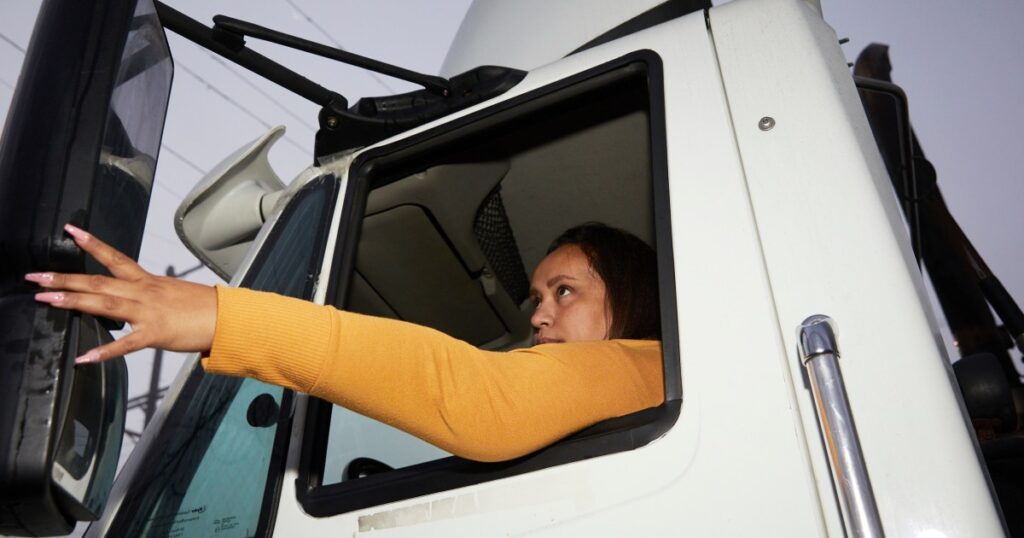Employment Recovery
As Covid restrictions have lessened, job recovery for Latinas is occurring more rapidly compared to Hispanic men, according to Mónica García-Pérez, an economics professor at St. Cloud State University who focuses on labor economics.
While trucking hasn’t yet drawn many Latinas across the country, García-Pérez notes there may be regional growth in areas with numerous warehouses and distribution centers. Those returning to work tend to fill roles traditionally dominated by men, such as packing and shipping.
Career Transition
Antoinette McIntosh, 42, lost her position as a financial adviser at a bank on the East Coast during the 2008 market crash, which also cost her a six-figure salary.
A close friend, Robert Montgomery—eventually her fiancé—encouraged her to pursue her passion for driving by joining his trucking company. The organization covered her travel and training costs in Salt Lake City in return for their commitment to work there for a year.
“I’ve been doing this ever since,” said McIntosh, who is Black and Puerto Rican and resides in Mississippi. After 15 years in trucking, she reflects on how her parents tried to steer her away from the profession, pushing her instead toward a college education in psychology and social work.
Empowerment Through Driving
Rosio Villagrana, 35, obtained her Class A truck driver’s license recently and joined a company that hadn’t employed a female truck driver for years. After managing a pawn shop for nearly a decade and feeling restless during the pandemic, she decided to pursue truck driving.
“Why not?” Villagrana thought, emphasizing her belief in women’s capabilities in this male-dominated field. Her ultimate dream is to become an owner-operator with her own fleet of trucks.
Challenges in the Industry
Despite the positive experiences shared, many challenges exist in the trucking industry. McIntosh noted that her marriage ended over her trucking career, as her former spouse opposed her driving.
She faced financial struggles after leasing a truck, as various expenses were deducted from her pay, leading to a class-action lawsuit settlement over the leasing issue. Tragically, while traveling in June, her fiancé died from a heart attack in their truck cab.
Adapting to Adversity
After an accident involving a drunk driver in Colorado, Tracy Barajas, 27, experienced wage cuts and lost benefits at her previous company. Since then, she and her boyfriend switched to driving for FedEx, achieving a stable income again.
Wood from Real Women in Trucking advises caution, noting that women paired with unknown male drivers during training face risks, which could include harassment or worse. The Federal Motor Carrier Safety Administration is investigating safety concerns faced by women and minority truckers.
Community Support
While the Latinas interviewed reported not facing physical harassment, Barajas noted receiving negative comments online due to her role as a female truck driver. Nevertheless, she finds motivation in messages from women who feel inspired by her journey.
As women enter this sector, they must be cautious of exploitative training practices. The American Trucking Association reported high turnover rates among truck drivers, particularly during their first year, underscoring the challenges within this profession.


